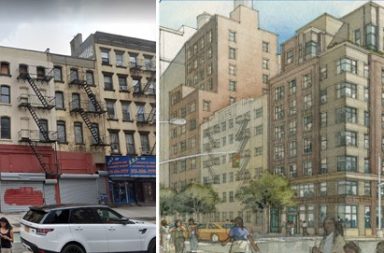IF YOU have debt coming due in the next few months on a perfectly fine commercial building, you could lose it. That’s because although most lenders don’t want to take back properties or simply sell to another operator for pennies on the dollar, they don’t want to get taken advantage of, either.
“Where they can get away with it, banks are insisting on either equity being put up, reserves being put up or some recourse,” said Gary Rosenberg, a partner with the law firm Rosenberg & Estis. “They are definitely looking to improve their positions.”
During the last few years, clauses were added to mortgage documents to create an instant liability if the borrower files for bankruptcy.
“The new loans have a ‘good guy’ clause and you become personally liable if you file for bankruptcy,” Rosenberg explained. “There are a number of situations now where owners are no longer stalling, because you won’t gain anything.”
In some cases, a lender might agree to a six-month extension or “forbearance” agreement so that both sides don’t go into litigation while the asset is being sold.
“The lender is holding off on foreclosure, but you are trying to sell and hope to pay off the debt, but if it is underwater, the lender will still have to decide what to do,” said Arthur Milston, managing director of Savills US.
Billy Procida says even if a loan is non performing, lenders should not let construction stop. “Treat the borrower decently,” advised Procida, whose company, William Procida Inc., works on behalf of lenders. On the other hand, he minces no words. “If the borrower hasn’t treated you that way, crush him and get it back.”
Procida describes himself as “a rescue agent.” “I come in and rescue the project – as a turnaround guy and a developer for hire. At the end of the day, I come in and clean up the mess and try to save the bodies,” Procida said. He advises borrowers, “Make nice with the bank, you owe them money. Don’t spend all the money on lawyers.”
Daniel McNulty, co-chairman and co-CEO of DTZ Rockwood, explains borrowers need to anticipate what the lender is thinking about, and then help the lender understand market-driven issues. DTZ Rockwood handles loan restructurings, debt extensions and modifications, equity participations, loan syndications, joint venture recapitalizations and asset dispositions for many institutions and companies.
To maintain cash flow on occupied buildings, owners are also staying on top of tenant receivables, and are no longer waiting for a full month to pass before reaching out. Office and showroom tenants in the fashion industry are being closely watched, as are hedge funds and other companies whose businesses depend on financial services. “It is a brutal time for retail and restaurants,” added Rosenberg.
The increasing number of bankrupt retailers is also causing problems at malls around the country. Attorney Edward A. Mermelstein said, “The banks have no choice at this time or they will own half the malls in the country.”
Back in the days of the Resolution Trust Corp., the old savings and loan companies kept loans in their own portfolios, making them easy to sell. But over the last decade, most loans were divided up and sold in tranches, often through the collateralized mortgage backed securities (CMBS) market.
“You have banks willing to do workouts and their partners in the note are not,” said Mermelstein.
Tranch owners like iStar Financial, which have been having their own financial problems, have been less likely to agree with the other noteholders. In many cases, most of the traunches would lose their entire investment, and those situations are becoming more common.
Too, the market has been sliding further, thus sending stale offerings, like Worldwide Plaza, into value tailspins. In this instance, some stakeholders don’t want to take a loss but few buyers are willing to pay for a halfempty building that needs an enormous amount of further equity to make needed interior improvements for tenants.
“It’s not the best market in which to sell assets,” said Rosenberg. “Deutsche found that out when they went to sell the Macklowe portfolio.”
As time went by, while the Macklowe office properties were sold off, they fetched lower and lower prices per foot – and now Worldwide Plaza and the office portion of 1540 Broadway are stuck in a waiting game.









